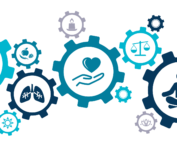Ignorance is bliss so they say, but in this day and age it’s hard to be ignorant of much. With round the clock news and social media updates, constant access to phones and the internet, and even the ability for your loved ones to track your whereabouts, we are definitely living in the ‘always on’ era. This probably isn’t news to most people, and indeed many individuals enjoy the conveniences our technology laden world provides. However, if the rise in ‘digital detox holidays’ is anything to go by, it’s starting to look like there are pockets of people who are over the novelty of always being connected.
To some, the idea of an entire week or even a weekend without access to technology genuinely causes panic, and the growing trend of ‘right to disconnect’ laws, may cause unease for some people. These laws empowers employees in organisations to refuse to engage with work-related e-mails outside of their assigned working hours and was driven by concerns around the impact of the ‘always on’ culture on areas such as sleep, stress levels and relationships. Even though we know the potential pitfalls of always being contactable, for many of us it is hard to disconnect, and initially at least, being disconnected can cause equal amounts of stress as being ‘always on’. It’s a catch-22 situation that many of us are familiar with, but if we don’t find a way to circumnavigate the challenges of being constantly connected, we put ourselves at risk. But in lieu of a ‘digital detox holiday’ or giving up digital altogether, what can be done to manage the pressure the always on era places on us?
The rise of resilience
The concept of resilience has been growing steadily in popularity in recent years. Once a little understood phenomenon, of interest only to psychologists studying trauma, resilience is now a word de jour and many individuals, organisations and public bodies are clamouring to adopt it.
We often think of resilience as the ability to ‘bounce back’ after significant adversity; situations such as abuse, bereavement and deprivation are common examples, and while these scenarios certainly do require and build resilience, it’s not just the ‘big’ stuff we need to be resilient against – especially in the always on era.
Resilience in the current culture is important because we rarely have a moment to ourselves; we are constantly bombarded with information, being contacted by friends, families, colleagues and even enemies, and we feel compelled to engage with it all. Over time these ‘small’ intrusions in our lives build up and wreak havoc with our psychological wellbeing. Never feeling able to switch off from the demands of work, while also trying to entertain and please family and friends is exhausting enough when it’s positive interactions, but often it’s not. Instead we see round the clock news of disasters, read about trauma and despair on social media, get pulled into family disputes over text messages, and receive angry e-mails from our colleagues about things we often cannot change outside of work anyway.
When you can’t switch off from all this it can be easy to surrender to the feeling of overwhelm that creeps up, and this is where resilience is important. Yet, despite popular belief, being resilient in the face of the intrusions is not about never letting it get to you, rather it is about finding the strength to continue moving forward when it does, and most importantly: learning from the experience.
It’s also important to be aware that resilience can be developed; yes some people have a naturally resilient mindset, but research has found that this can be depleted if constantly drawn upon, and similarly, those without a natural resilience can build it up over time.
Building resilience
Perception is the key to resilience; research has shown that it’s how people perceive and interpret events that ultimately determines their response and influences their ability to be resilient. Those that experience negative events and interpret them as traumatic are significantly more likely to suffer psychological distress as a result, regardless of what the event was. On the other hand, those who experience negative events but perceive them as opportunities for learning and growth tend to experience far less distress. These are the people who, viewed from an external perspective, are ‘resilient’ and ‘bounce back’ easily.
Often such individuals don’t actively recognise this ability in themselves, but are looked on with wonder by those who don’t possess this skill. And it is a skill. Just like learning to ride a bike, developing resilience and becoming mentally tough is something that can be learnt. But just like learning to ride a bike, it does take practice. This needn’t be an arduous task though; building the resilience and mental toughness to face the challenges of the always on culture is something better tackled by taking small steps. Start by changing your interpretation of small events – a seemingly rude e-mail from a colleague could be reinterpreted as that person having a bad day, or them simply being a rude person in general, and nothing personal against you. A stressful experience at work could be re-framed to highlight the learning opportunities it presents. One of the most important things to work on is developing awareness of what is (and more importantly what is not) within your control, and working to change those things that are, and letting go of those that aren’t.
Linked to this is the willingness to take control when you can; we don’t always have to ‘be on’, we do have a choice and if the pressure from others gets too much then do something differently. Elect to turn off you phone for half an hour so you won’t be tempted to look at it, or go for a walk somewhere you know you get poor reception. You could even just tell people that you need some time alone; let you work colleagues know that every day/week/month you will be blocking some time out to focus, and they are not to disturb you, and do the same at home.
Being able to manage the impact of the digital world on our wellbeing is important, and because we know this to be the case we enforce boundaries on our children when it comes to ‘screen time’. We do this for our children because we understand that it’s detrimental to their development to only ever be interacting with a digital device. Yet, we don’t apply the same boundaries to ourselves, even though the negative impact is still the same, and potentially worse in fact because we feel we ‘have’ to use technology to stay connected and do our jobs, especially given the current circumstances. However, just because we are more reliant on technology than ever before, doesn’t mean that we can’t take steps to assess and address the consequences. You could start by simply considering why we feel it’s important to impose restrictions on our children when it comes to digital devices, and use this to encourage restrictions in your own life too.
There are many other things both preventative and responsive that can be done to build resilience and reduce the impact of always being connected to the digital world, but it’s also essential to be mindful of your development in this area. If you are actively trying to improve your mental toughness then take some time to reflect on your progress, perhaps there are things you can handle now that would have bothered you immensely a few weeks or months ago. Perhaps you are taking more proactive steps to reduce the influence of the digital world on your wellbeing, whether this is reducing time on social media, disconnecting from e-mails after work, or not responding immediately to messages from friends. While these may seem like small wins in the grand scheme of things, they are wins nonetheless and over time they accumulate and quickly amount to drastic changes in how you manage yourself, your time and your health, and that is what resilience and mental toughness is all about.
Read Next
Who’s Taking Care of Managers?
A lot of responsibility is laid at the door of managers when it comes to looking out for their employees – they are asked to support individuals with job performance, professional development, career progression, [...]
What’s L&D’s Role in Employee Wellbeing?
A recent CIPD report stated that wellbeing is suffering as a result of the pandemic, but their wellbeing is barely (if at all) taken into account when business decisions are made. This is surprising, [...]
Out With Stress for National Stress Awareness Week
National stress awareness week is upon us again, and we wanted to explore stress from a positive angle this year. After all, most of us know about the negative effects of stress; poor concentration, [...]
Mental Health and Emotional Flexibility
In the past I have taken part in a wide variety of activities to raise awareness of the importance of Mental Health in the workplace, activities such as ‘Chimp Management’, resilience (learn about your [...]
Developing Mental Toughness and Resilience
Mental toughness is essential for navigating the trials and tribulations of our everyday lives; stress at work, relationship difficulties or physical ailments. In truth you never know when you’ll need to be resilient, and [...]
Mental Health – Why We Need to Do More
In honour of World Mental Health Day on 10th October, Underscore Training Hosted a Mental Health Workshop. The aim was to gather people from different organizations together, to talk about the vital issue of [...]






